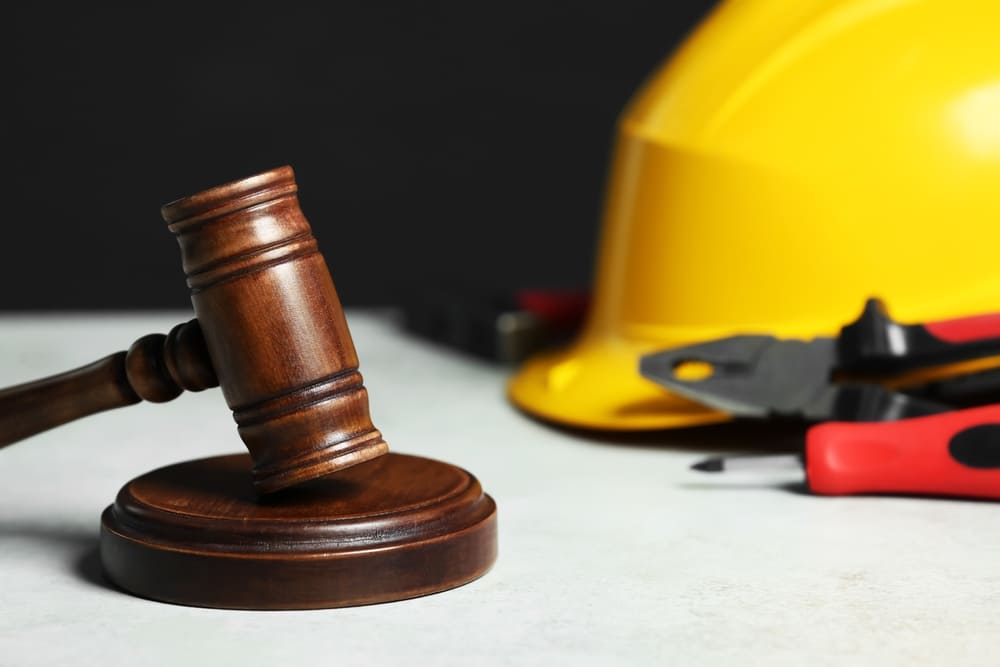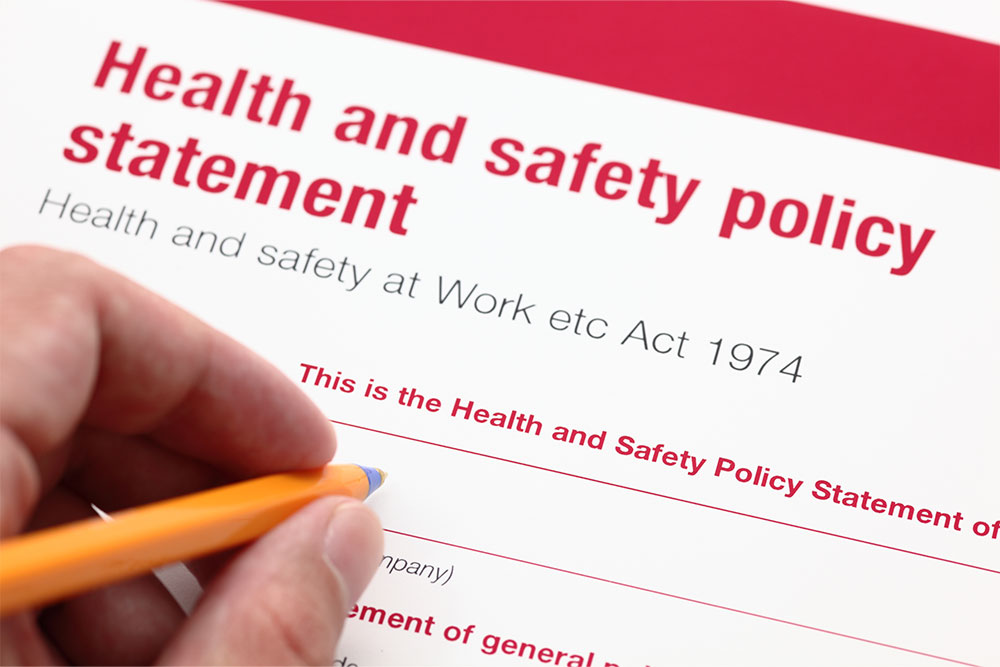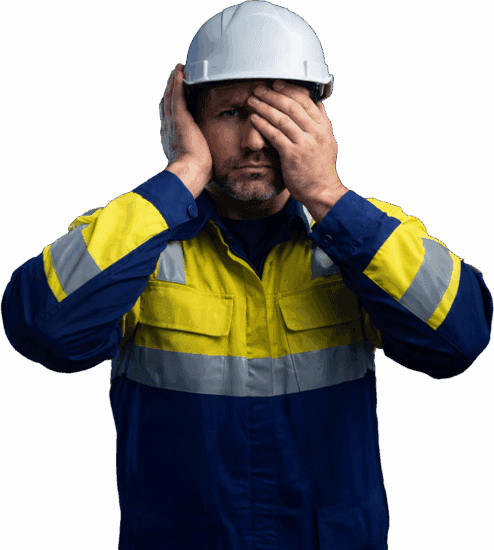
Health and safety laws can be complicated. They’re dense and difficult to follow, yet still leave so much open to interpretation. But whether you work for yourself or a company, you’ll have to adhere to different health and safety legislation, regulations, laws and guidance.
Knowing the difference between safety legislation and safety regulations can make all the difference in compliance. Understanding these legal terms can help you stay safe at work and avoid costly penalties.
In this article, we’ll explain the difference between legislation and regulations, define what an Act of Parliament is, and review how guidance and policy fit into the picture. By the end, we can’t guarantee you’ll be ready to present an argument at the Old Bailey, but you’ll better understand everyday legal health and safety terms.
Key Takeaways
Legislation refers to laws passed by Parliament. They’re also called Acts of Parliament.
Regulations are secondary laws made under the authority of an Act. They contain detailed rules and procedures necessary for implementing primary legislation.
Both legislation and regulations are legally binding. Breaches can result in fines, imprisonment and enforcement actions.
What is Legislation Exactly?
Regarding the UK legal definition, legislation is defined as “a law or a set of laws that have been passed by Parliament”. Legislation addresses a particular issue or issues that impact society, affect the economy or require governance.
Legislation is created through a formal process of proposal, debate and approval by the legislative body – the Houses of Parliament of the United Kingdom of Great Britain and Northern Ireland.
Creating legislation involves passing bills through the House of Commons first, then the House of Lords. After that process has been completed, the proposed legislation must get Royal Assent from the monarch before it comes into force. Passing a piece of legislation can take as little time as a few days, or it may take years.
People, businesses and organisations are all legally obliged to comply with legislation passed by parliament.
What Are Acts of Parliament?
An Act of Parliament is another term for a law or legislation. It specifically describes a law that has been formally passed by both Houses of Parliament (the House of Commons and the House of Lords) and received Royal Assent from the Monarch. Enacted Acts of Parliament are part of the statutory law and are legally binding across the UK or specific parts of it, depending on the Act’s scope.
Some Acts create new legislation, while others amend existing Acts. For example, the Worker Protection Act 2023 was passed to amend the Equality Act 2010. (Specifically, the Worker Protection Act strengthened requirements for businesses to manage sexual harassment risks.)
Acts typically start as Bills, which are essentially proposals for new laws or changes to existing ones. A Bill goes through several readings, debates, and committee stages in both Houses.
Health and Safety Courses
Our health and safety courses support legal compliance and effective risk management. They raise awareness of common workplace hazards and teach the fundamentals of safe working.
What Happens if You Breach UK Health and Safety Legislation?
Breaching health and safety legislation is considered a criminal offence in the UK.
Penalties for breaches of health and safety legislation can be severe. Punishment can result in fines, imprisonment, or both. If a case is heard in a magistrates court, fines can be anywhere between £5,000 to £20,000 per offence.
More serious offences go in front of the Crown Court. Here, there is no limit to the fines that can be imposed. You can also be sentenced to a prison term of up to two years.
In most cases, breaches are investigated by the Health and Safety Executive (HSE). The HSE has a particularly high conviction rate (over 90%), so the vast majority of investigations result in some form of penalty.
However, breaching health and safety legislation risks much more than just a financial penalty. Tragically, workers die or are severely injured when health and safety laws are violated.

What is a Regulation?
Regulations differ slightly from legislation. Regulations are forms of secondary, subordinate, or delegated legislation and are always linked to an existing Act of Parliament. They are created by an individual or body under powers given to them by the primary legislation.
Regulations contain detailed rules and procedures necessary for implementing primary legislation. You can think of a piece of health and safety legislation as something that tells you what to do, and the associated regulations as the information that tells you how to do it.
There must first be an enabling piece of legislation to pass a regulation. Related regulations are then drafted by government ministers or authorities. These undergo an internal review process and, in some cases, are presented for public consultation.
The draft regulations are then reviewed by Members of Parliament (MPs) in both the House of Commons and the House of Lords. If there are no significant objections, the regulations are approved and come into force.
What Happens if You Break a Health and Safety Regulation?
Breaking a health and safety regulation isn’t as serious as breaching legislation, but it’s still an offence. The severity of the consequences often depends on the nature of the regulation and the specific circumstances of the breach.
For minor breaches, the HSE will likely work with you to fix the issue. For more serious breaches, the HSE will issue formal warnings or prohibition notices. Businesses may even lose specific licenses or permits. Fines are also possible.
There are also indirect consequences. Non-compliance hurts a company’s reputation and can make it difficult to find clients, partners or staff.
Other Terms
What is Guidance?
Legally, guidance is positioned below legislation and regulations and usually comes from advisory documents and information provided by government departments, agencies, or industry bodies. Most health and safety guidance in the UK is provided by the Health and Safety Executive (HSE) in the form of Approved Codes of Practice (ACOPs).
ACOPs and other guidance provide advice and recommendations on how individuals, businesses and organisations can understand and comply with health and safety laws. Guidance isn’t technically legally binding like legislation or regulations are, so you aren’t obligated to use it.
However, following official guidance will help you meet legal requirements and also demonstrate you’ve taken your duties seriously should you face scrutiny from regulators.
What is Policy?
A health and safety policy is a set of rules issued by the government, a business or an organisation. Policy guides decision-making and provides a framework for acting within a particular area or domain.
Policies are usually mandatory and enforceable by government agencies, organisations, or businesses. The penalties for breaching a policy can vary. You may face termination of employment, lose your right to operate a business or face fines or other penalties under relevant legislation.

Important UK Health and Safety Legislation and Regulations
There are many different types of health and safety legislation in the UK. Some deal with industry-specific issues, while others are more general and apply to everyone. The main ones to know are:
Legislation
- The Health & Safety at Work Act 1974 (HSWA) – The HSWA applies to every business and organisation in the UK. It’s effectively the foundation for all health and safety law, and imposes the legal duty for employers to prevent work-related harm.
Regulations
- The Management of Health and Safety at Work Regulations 1999 – These regulations support the Health and Safety at Work Act 1974. If the HSWA is the “what”, the Management Regulations are the “how” – they make it necessary for employers to carry out risk assessments for their workplace and work activities.
- The Workplace (Health, Safety and Welfare) Regulations 1992 – These regulations expand on the general duties of the Health and Safety at Work Act 1974. They set out minimum health, safety and welfare requirements for all workplaces – covering essentials like ventilation, lighting, cleanliness, toilet facilities and workspace dimensions.
- The Health and Safety (Display Screen Equipment) Regulations 1992 – These regulations focus on protecting workers who regularly use display screen equipment, such as computers. They require employers to assess workstation risks, provide training and ensure regular breaks to reduce the risk of repetitive strain injuries, eye strain and fatigue.
- The Personal Protective Equipment at Work Regulations 1992– These regulations make it a legal duty for employers to provide suitable personal protective equipment (PPE) when workplace risks cannot be controlled in other ways. PPE must be properly assessed, maintained and used to ensure it offers effective protection.
- The Manual Handling Operations Regulations 1992 – These regulations are designed to reduce injuries caused by lifting, carrying, pushing or pulling. Employers must avoid hazardous manual handling where possible, assess the risks involved, and take steps to reduce the chance of musculoskeletal damage.
- The Provision and Use of Work Equipment Regulations 1998 – Commonly referred to as PUWER, these regulations require that any equipment used at work is suitable, maintained in a safe condition and used by trained people. PUWER applies to everything from hand tools to heavy machinery.
- The Working Time Regulations 1998 – These regulations protect workers from excessive working hours and ensure they get sufficient rest. They set legal limits on the average working week, regulate night work, and establish rights to paid leave and rest breaks.
Regulation vs. Legislation - Where to Learn More About Health and Safety
We all need to take care of each other at work. Ultimately, workplace safety is everybody’s responsibility.
If you’re an employer, you must ensure you’re well informed about what health and safety legislation and regulations apply to your business. If you’re an employee, understanding safety legislation and regulations can help keep you and your colleagues safe.
Our Health and Safety Courses will give you and your team the skills to create a safer workplace.





















